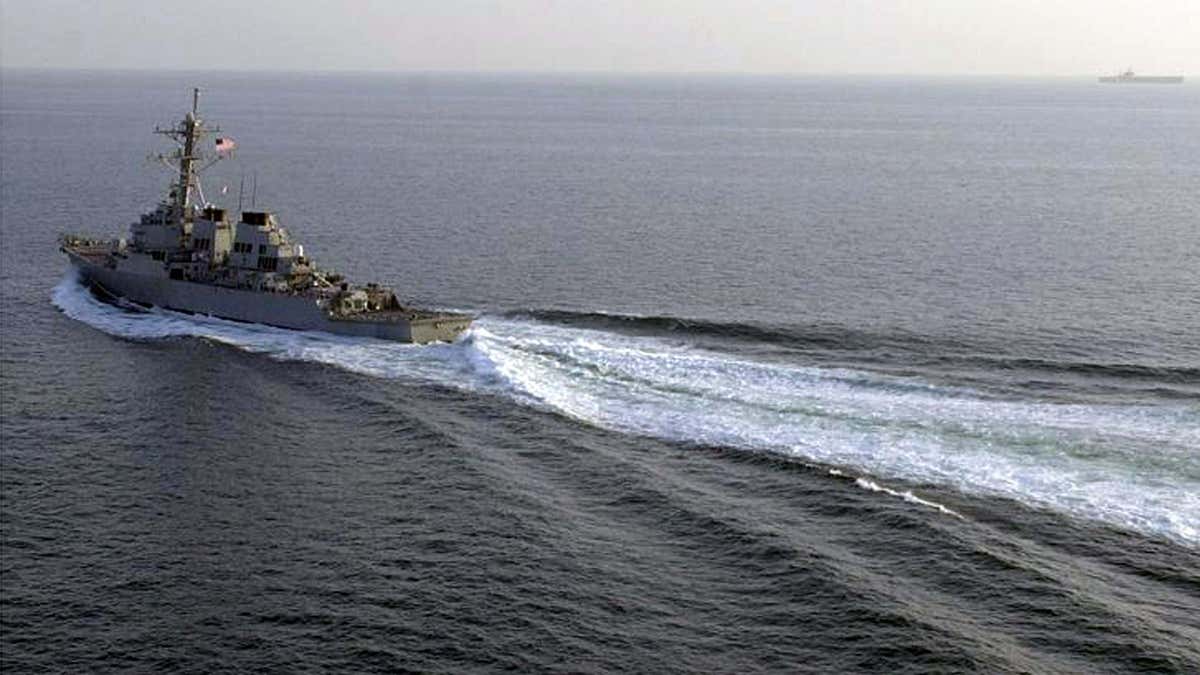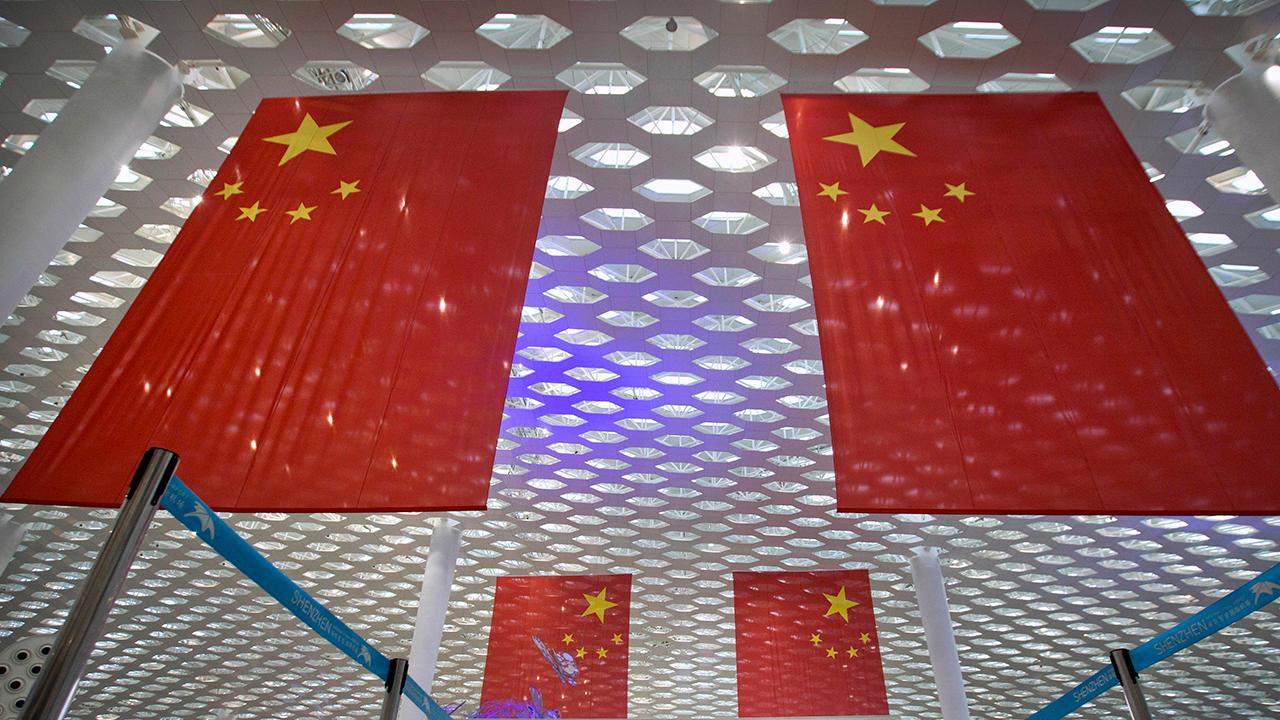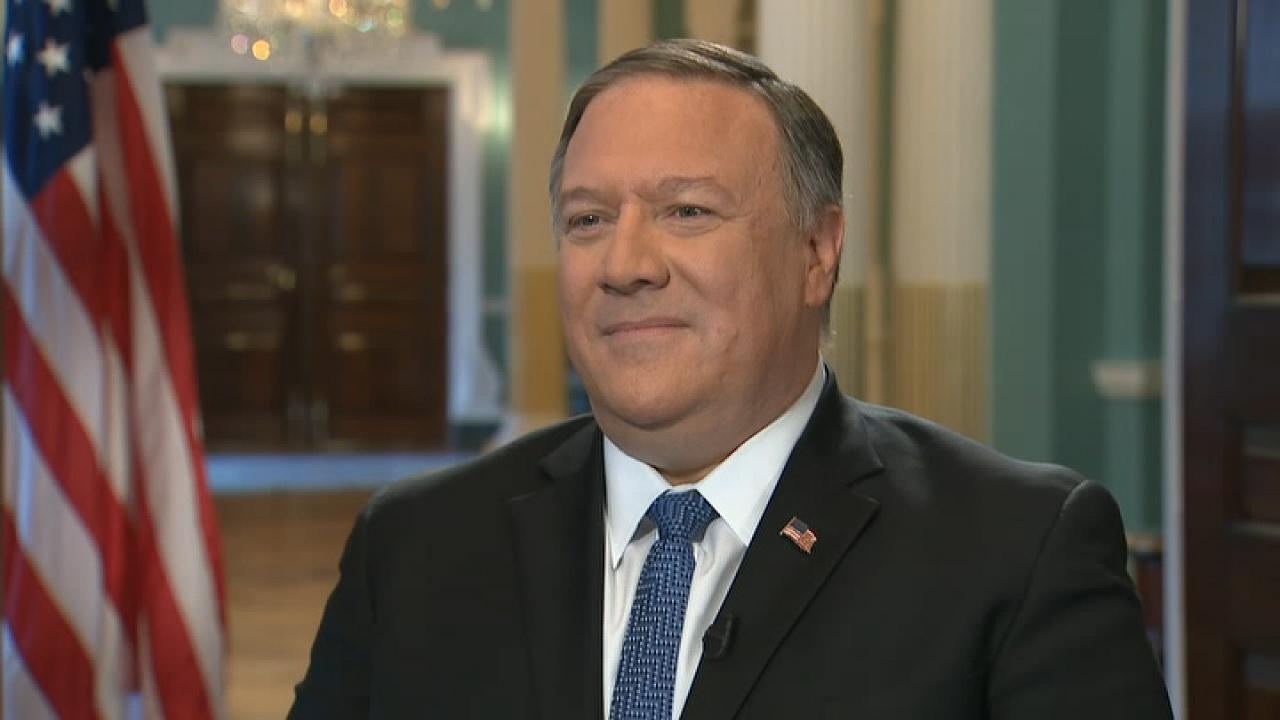
The USS Curtis Wilbur, one of two ships to pass through the Taiwan Strait on Sunday. (Reuters, File)
Two American warships sailed through the Taiwan Strait on Sunday to send a message to the Chinese government ahead of high-level trade talks between the two nations.
The U.S. Navy guided-missile destroyer Curtis Wilbur and U.S. Coast Guard cutter Bertholf sailed through the strait, a body of water separating Taiwan from mainland China that is approximately 100 miles wide and is considered a hot spot for any potential conflict.
Cmdr. Clayton Doss, a spokesman for the Navy 7th Fleet, said in a statement that the ships had conducted a "routine Taiwan Strait transit March 24-25 [local time] in accordance with international law. The ships' transit through the Taiwan Strait demonstrates the U.S. commitment to a free and open Indo-Pacific."
The transit marked the third time in three months that the U.S. sailed warships through the strait, which is officially considered international waters. However, China has considered Taiwan its own territory to be brought under its control -- by force if needed -- and has monitored foreign military activity in the waterway closely.
Beijing has considered control over Taiwan a matter of national pride, as well as a key to its access to the Pacific, the South China Sea and elsewhere. Taiwan President Tsai Ing-wen warned last month that the military threat from China was increasing "every day."
"The Chinese side has been closely monitoring the U.S. warships sailing through the Taiwan Strait," Foreign Ministry spokesman Geng Shuang said Monday. "We are well aware of the whole process. We have also made complaints with the U.S."
Geng said the U.S. needed to abide by previous commitments to China "so as not to avoid damage to China-U.S. relations and peace and stability of the Taiwan Strait."
CLICK HERE TO GET THE FOX NEWS APP
The transit came days before a high-level American delegation led by Treasury Secretary Steven Mnuchin and U.S. Trade Representative Robert Lighthizer are scheduled to arrive in China for the eighth round of trade negotiations aimed at resolving a long-running dispute.
The trade dispute escalated last year after the U.S. made several complaints, including that China was stealing U.S. trade secrets and was forcing companies to give them technology to access its market. Trump imposed tariffs on $250 billion of Chinese imports, about half what the United States buys from that country. China retaliated with tariffs on about $110 billion of U.S. items.
The Associated Press contributed to this report.










































